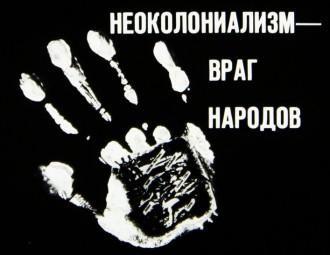Uladzimir Matskevich: Degenerative and underdeveloped Belarus is an advantage for Russia

Russia is carrying out neocolonial policy towards post-Soviet countries and is not interested in the modernization processes at the post-Soviet area.
This remark was made by Uladzimir Matskevich, the head of the Board of the International Consortium “EuroBelarus”, when commenting upon Aleksandr Surikov's words, Russian Ambassador at the latest press-conference.
On modernization:
- “Modernization” was one of the key notions in Surikov’s comments, and it is also the main problem both for Belarus and for Russia. Assumingly, Russia is to enter the modern differentiation of labor not as a source of raw materials abundant in cheap labor, but rather as a country with scientific developments and innovations.
Russia pays much attention to that at present, though no visible results are seen for now; whereas Belarus dismisses every attempt to discuss real modernization. Such European aid as the “European Dialog o Modernization” is ignored by the authorities who cut off scientists, experts, civil society from the dialog on problems which are indispensable for the country wishing to be the part of the developed world in the 21 century.
Colonization takeover
- Surikov’s words basically imply that Russia will support economically depressed and underdeveloped Belarus never supporting modernization processes; i.e. degenerative and underdeveloped Belarus is an advantage for Russia. Then Russia will have its small trade area and the area for testing all sorts of Russian developments. And Belarus will serve as a source of disciplined, qualified labor force with proficiency in the Russian language. Such neocolonial policy is noticeable in Surikov’s words.
Russia didn’t take the policy of incorporating Belarus into the Russian Federation. However, now it took the path of neocolonialism and imperial dominance over the underdeveloped regions of the former Soviet countries. In this sense Belarus is an area for improving different approaches and technologies. Thus, Lukashenka’s regime can be considered a Russian testing field designed to observe the existence of the authoritarian regime at the post-Soviet area.
Russia has its own problems
- Russia has its own difficulties in entering the list of the world advanced nations. For now it still remains a huge country with an archaic economic model. And dependence of our economy on supplying raw material resources for Russia hinders our development, leading our country to totalitarianism. As there exist very few companies that produce such materials, as well as the number of people and the number of regions involved in it are few, too. However, they earn much profit to be allocated. That is why companies that produce oil, gas, nonferrous materials are making profit, while all the rest are involved in allocation of this gained profit. Such mechanisms require authoritarian and even totalitarian regime; that is why Russian political and economic model are each other’s continuation.
On modernization:
- Belarus today is second to Europe and even Russia not only in new technologies, technical developments, inventions and so on; we are lacking behind in the legal sphere and in the sphere of activity arrangement conditions, too. That is why Russia almost controls the import of most consumer goods to Belarus.
Modernization is not all about science and technics; it is also about legislation and social relations. And it is impossible to start modernization processes from revolutionary renovation of science, higher education and technical developments. If we don’t start changing legal and organizational background for capital activity, our lagging in the scientific and technical sphere will only deteriorate. Russia will use the gap between Belarus and European countries, as Surikov’s words only testify to the fact that it is such situation Russia is interested in.
-
03.01
-
07.10
-
22.09
-
17.08
-
12.08
-
30.09








































